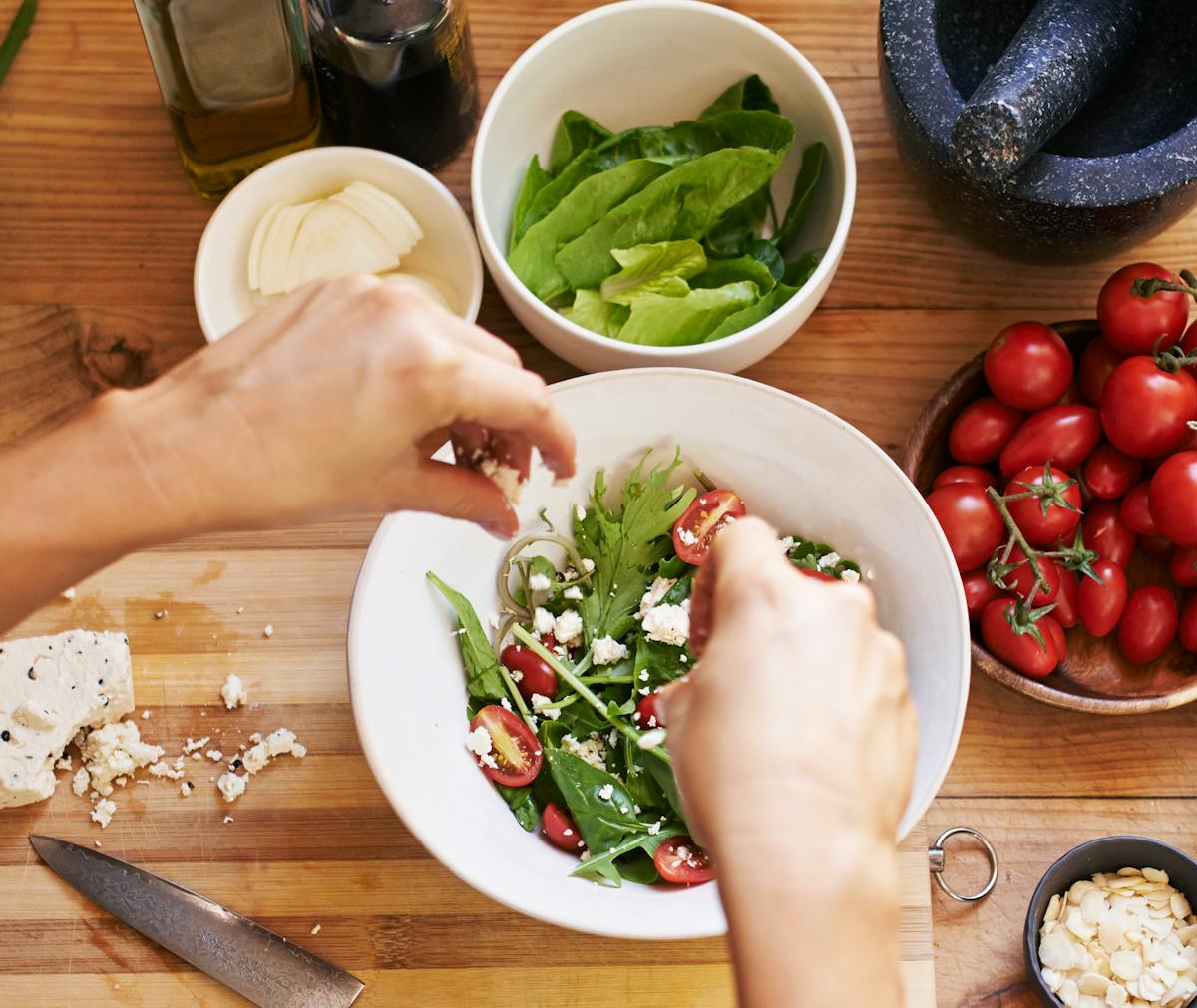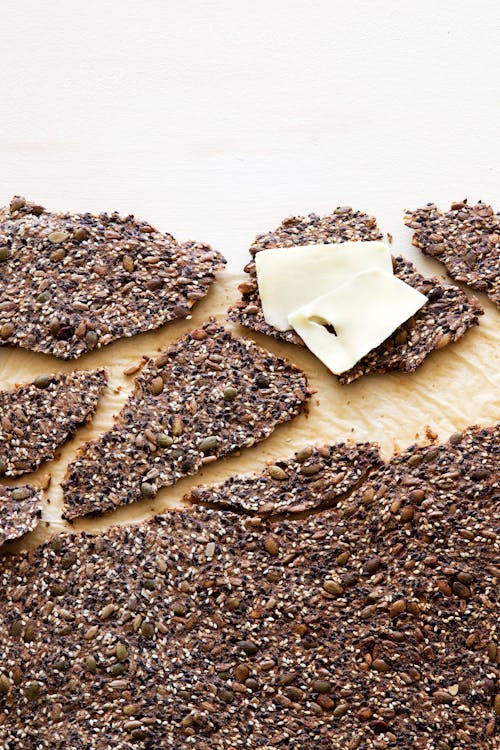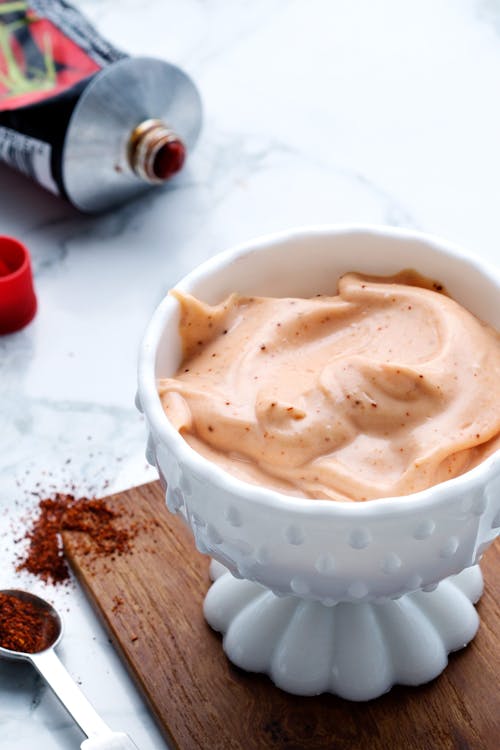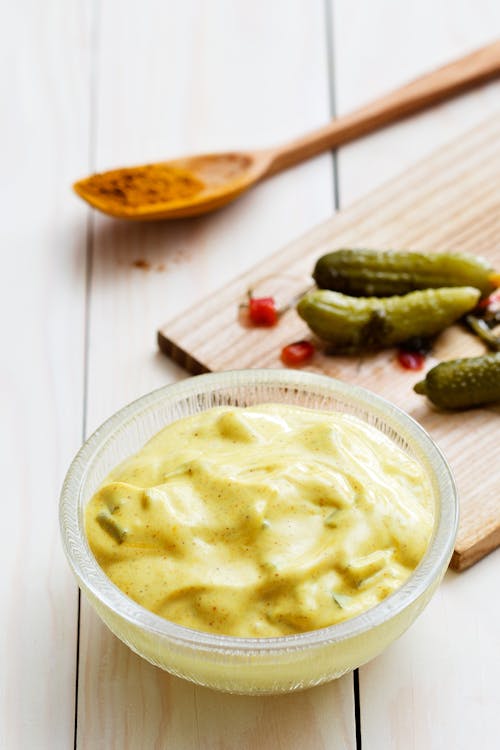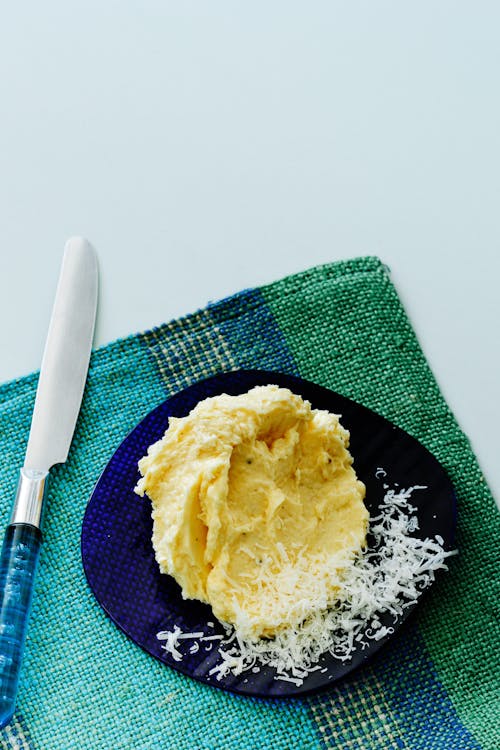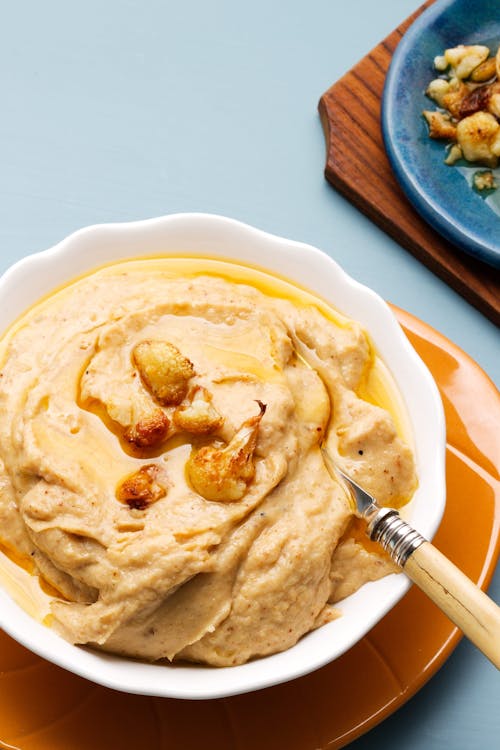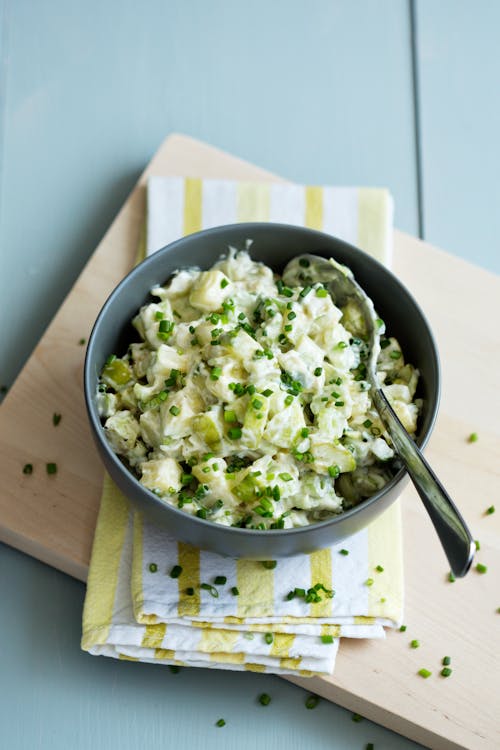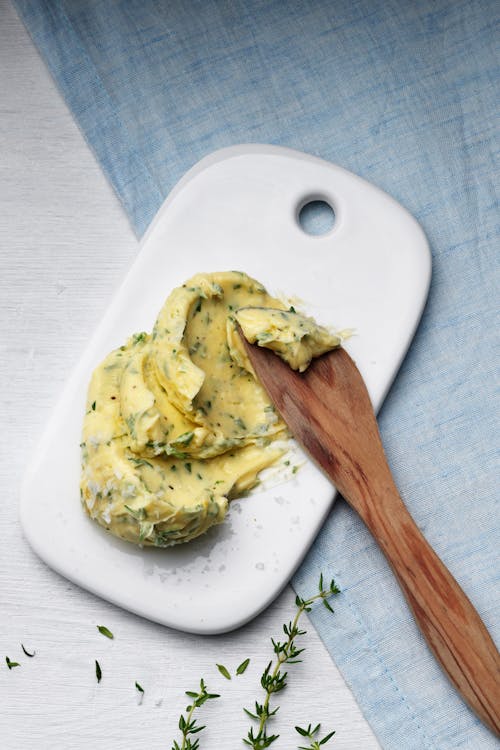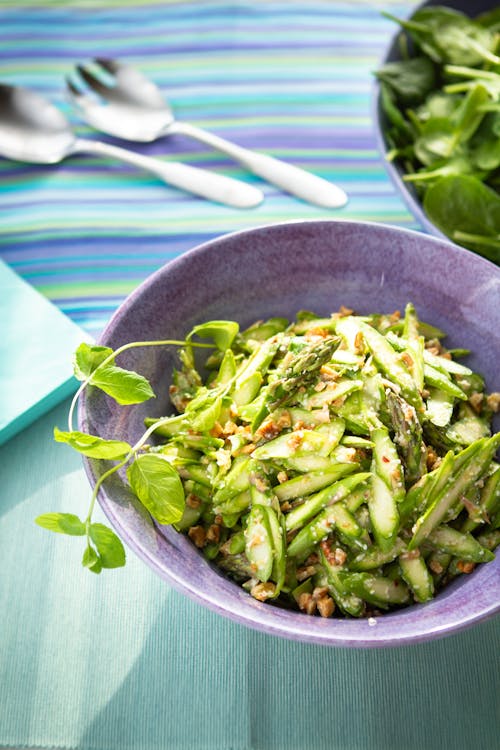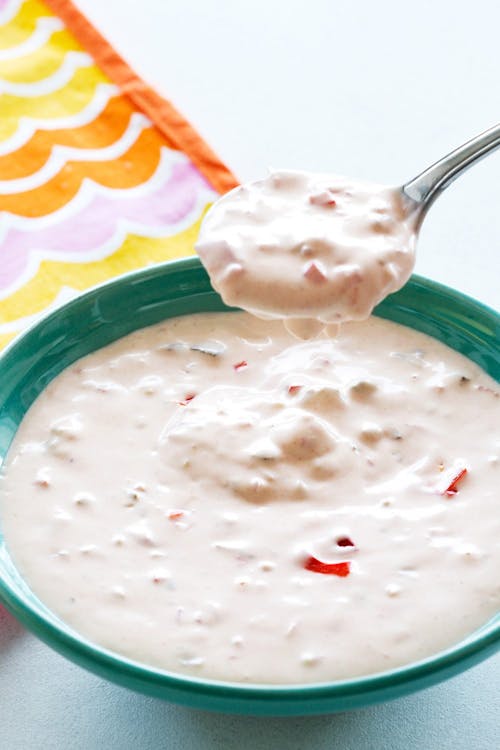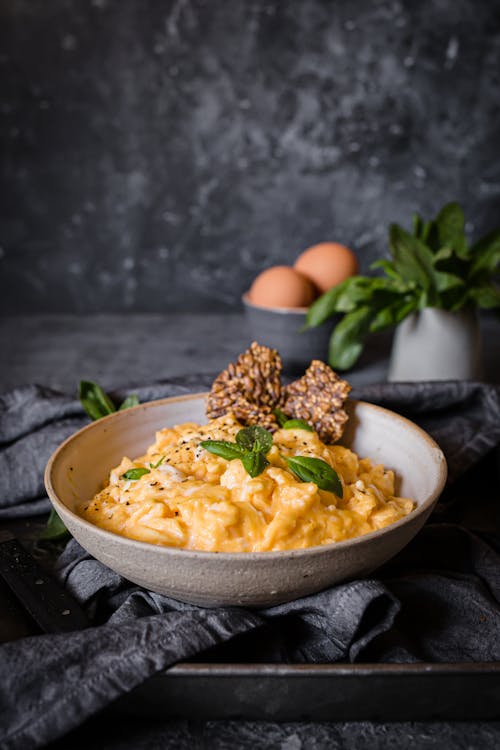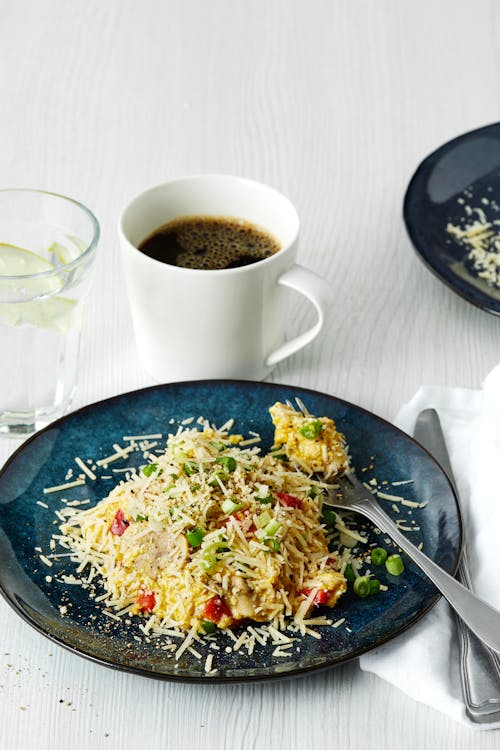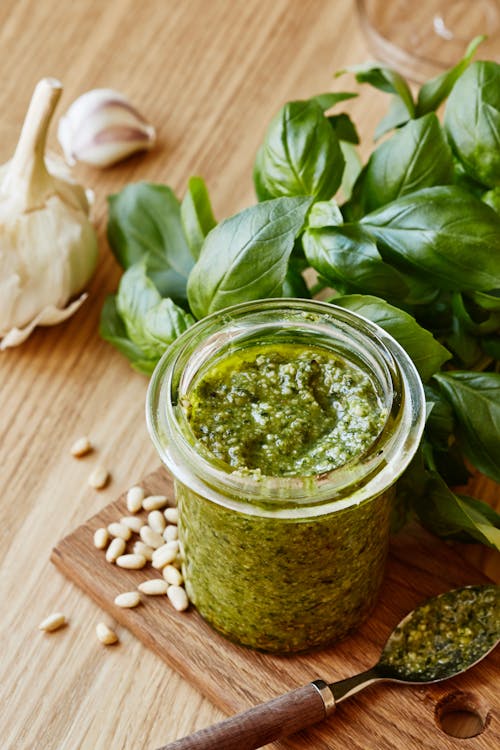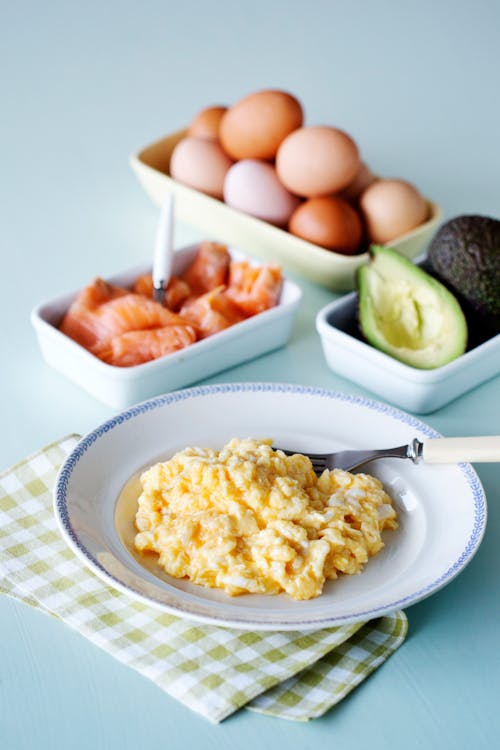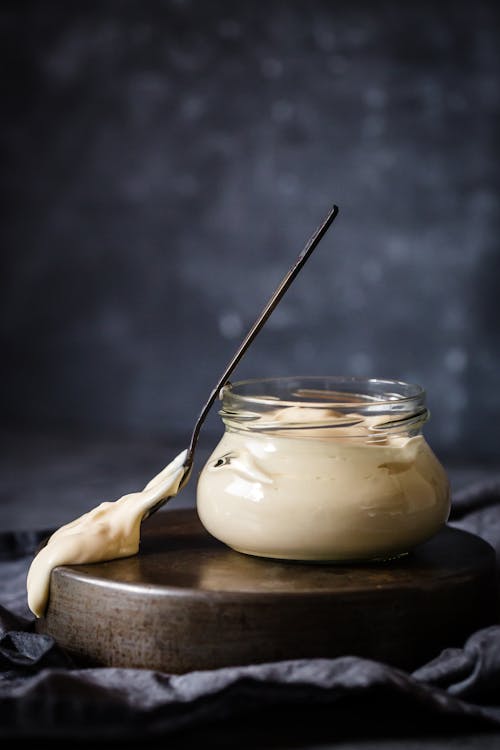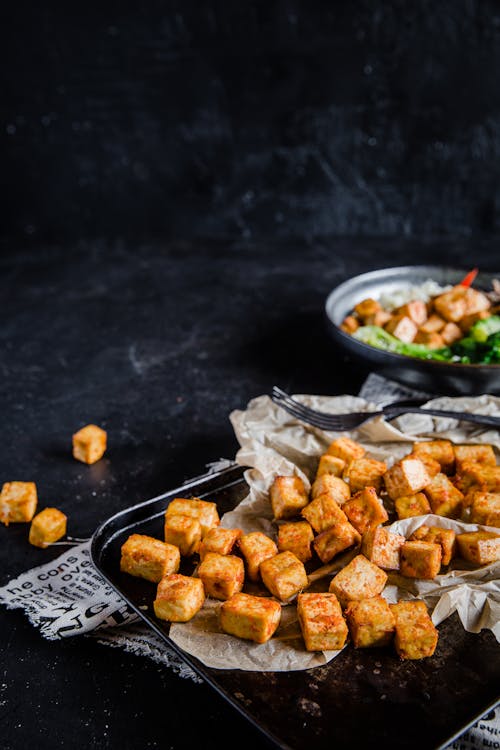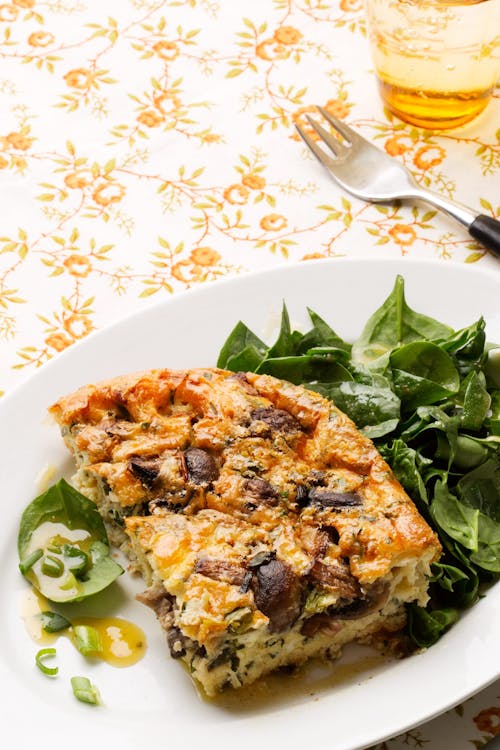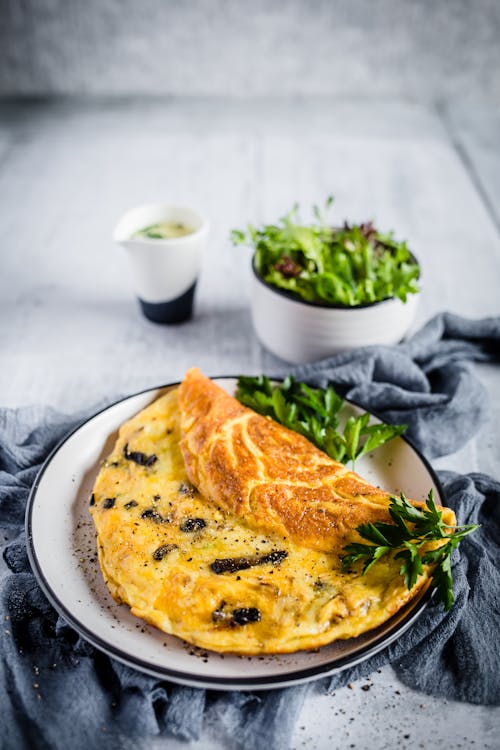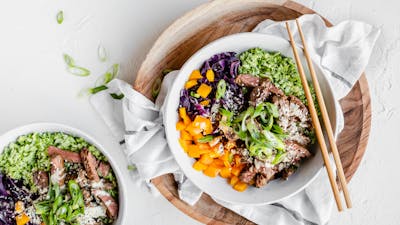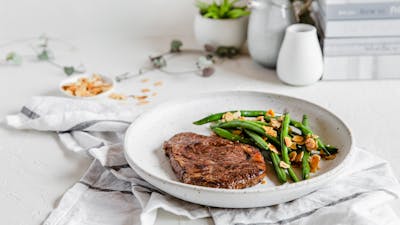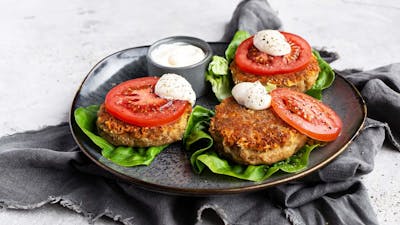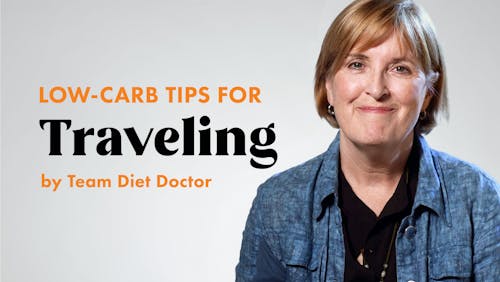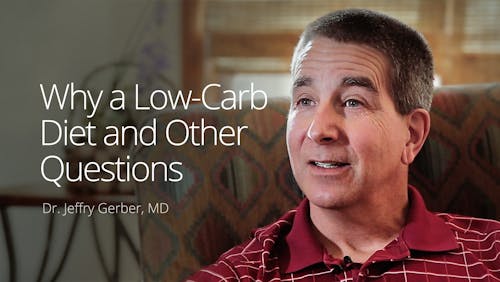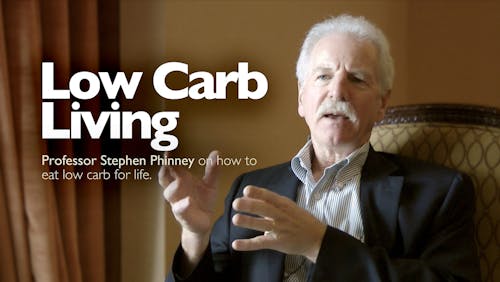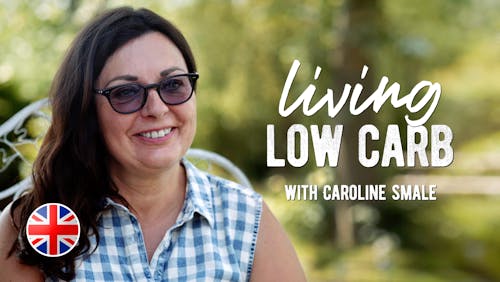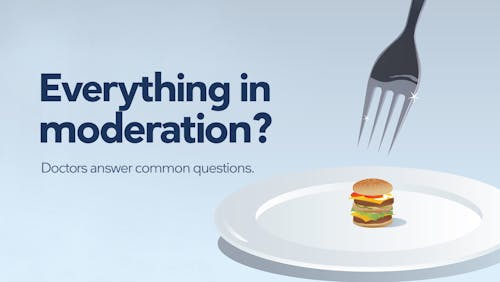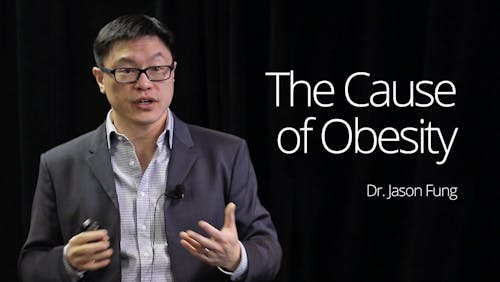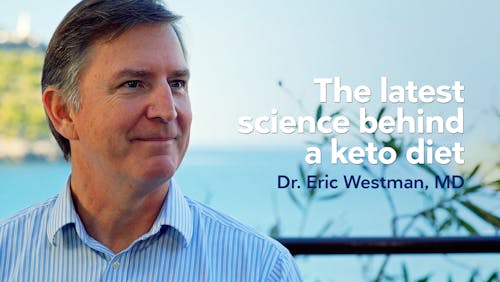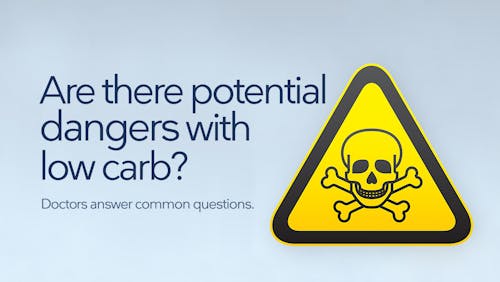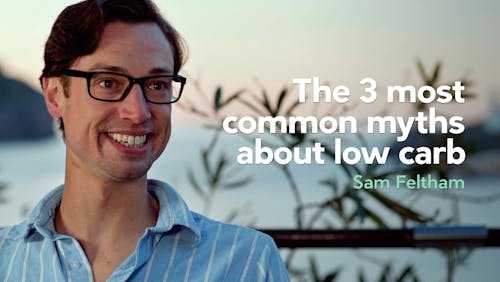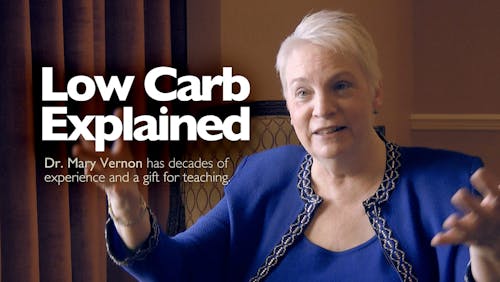Appendix: The healthy vegetarian keto diet
Omega-3 fatty acids
Omega-3 polyunsaturated fatty acids (PUFAs) are considered essential, meaning you need to get them from your diet. Studies suggest that long-chain omega-3 fats may reduce inflammation, lower triglycerides, and decrease the risk of cardiac events.1
The best source of these long-chain omega-3 PUFAs is fatty fish. However, some plants contain short-chain omega-3 PUFAs, a portion of which can be converted into long-chain PUFAs.2
Unfortunately, it’s estimated that most of us convert less than 10% of the short-chain PUFA alpha-linolenic acid (ALA) into the long-chain PUFAs eicosapentaenoic acid (EPA) and docosahexaenoic acid (DHA).3
Here are some strategies for getting your omega-3 fats as a vegetarian:
- Choose eggs from chickens fed omega-3-rich diets and dairy from grass-fed cows. This way, the animals do the conversion of short-chain to long-chain omega-3’s for you.
- Consider supplementing with green algae, the only vegetarian source of long-chain omega-3 fatty acids.
- Take the advice of experts who recommend that vegetarians consume twice the recommended daily intake (RDI) for plant-based omega-3 fatty acids (known as alpha-linolenic acid, or ALA).4 This works out to 2.2 mg of ALA daily.
The best keto vegetarian sources of omega-3 fatty acids
- Chia seeds: 2.5 grams of ALA and 2 grams of net carbs per Tablespoon (14 grams)
- Hemp seeds: 3 grams of ALA and 1 gram of net carb per ounce (28 grams)
- Walnuts: 2.5 grams of ALA and 2 grams of net carbs per ounce (28 grams)
- Flaxseed, ground: 1.6 grams of ALA and 0 grams of net carb per Tablespoon (7 grams)
Iron
You need iron to produce new blood cells and deliver oxygen from your lungs to the rest of your body. Without enough iron, you may become anemic leading to weakness and fatigue.
Vegetarians are at risk for iron deficiency because they avoid the best sources of iron: meat and seafood.5 Moreover, the iron that comes from plants isn’t absorbed as well as the iron from animals.6
There is conflicting evidence about whether vitamin C improves iron absorption.7 It may be a good idea to eat foods rich in vitamin C, like bell peppers, leafy greens, broccoli, Brussels sprouts, cauliflower, and cabbage, although it’s not clear how impactful this will be.
The RDI for iron is 18 mg for women who menstruate, 8 mg for men, and 8 mg for postmenopausal women.
The best keto vegetarian sources of iron
- Unsweetened chocolate (100% cocoa): 5 mg iron and 4 grams of net carbs per ounce (28 grams)
- Cooked spinach: 4 mg of iron and 1 gram of net carb per 3.5 ounces (100 grams)
- Pumpkin seeds: 4 mg of iron and 4 grams of net carbs per ounce (28 grams)
- Sesame seeds: 4 mg of iron and 3 grams of net carbs per ounce (28 grams)
- Olives: 3 mg of iron and 3 grams of net carbs per 3.5 ounces (100 grams)
- Hearts of palm: 3 mg of iron and 2 grams of net carbs per 3.5 ounces (100 grams)
Calcium
Calcium is involved in maintaining healthy bones and teeth, and it’s also needed for muscle contraction and blood clotting, among other things. The RDI for calcium is 1000 mg per day for most adults.
In general, getting enough calcium isn’t any more difficult for lacto-ovo vegetarians than meat eaters. However, if you’re an ovo vegetarian, you’ll need to make a point of consuming plenty of greens and other nondairy calcium sources regularly.
The best keto vegetarian calcium sources
- Sesame seeds: 275 mg of calcium and 3.3 grams of net carbs per ounce (28 grams)
- Cheese: 180-200 mg of calcium and 0-1.5 grams of carbs per ounce (28 grams)
- Greek yogurt: 180 mg of calcium and 5-7 grams of carbs per 6 ounces (170 grams)
- Spinach, cooked: 135 of mg calcium and 1 gram net carb per 3.5 ounces (100 grams)
- Broccoli rabe: 120 mg of calcium and 0.5 grams of net carb per 3.5 ounces (100 grams)
- Kale, cooked: 120 mg of calcium and 3.5 grams of net carbs per 3.5 ounces (100 grams)
Calcium is also found in many other foods in smaller amounts, including most nuts, seeds, and vegetables.
Vitamin B12
Vitamin B12 is crucial for keeping your brain, nervous system, skin, and other organs healthy. Although it’s found in all animal products, the best sources are liver, fatty fish, and lamb. In fact, just one serving of these foods exceeds the RDI for vitamin B12 of 2.4 mcg.
On the other hand, it may be difficult to meet your B12 needs on a vegetarian diet without supplementation unless you really pay attention to your food choices.8
The best keto vegetarian vitamin B12 sources
- Eggs: 1.2 mcg vitamin of B12 and 1 gram of carb per 2 large eggs
- Cottage cheese: 0.9 mcg vitamin of B12 and 6 grams of carbs per 6 ounces (170 grams)
- Swiss cheese: 0.9 mcg vitamin of B12 and 1 gram of carb per ounce (28 grams)
- Mozzarella cheese: 0.6 mcg of vitamin B12 and 0.5 grams of carb per ounce (28 grams)
- Greek yogurt: 0.5 mcg of vitamin B12 and 5-7 grams of carbs per 6 ounces (170 grams)
- Feta cheese: 0.5 mcg of vitamin B12 and 1 gram of carb per ounce (28 grams)
- Other cheeses: 0.2-0.4 of mcg per vitamin B12 and 0-1.5 grams of carbs ounce (28 grams)
Vitamin D
Vitamin D is both a hormone and a vitamin. It’s needed for calcium absorption and bone health, and deficiency has been linked to numerous health conditions.9
With the exception of fatty fish, vitamin D only occurs naturally in foods in tiny amounts. Therefore, unless you expose you skin to sunlight on a regular basis or consume fortified foods, you’ll probably need to supplement with at least 1,000 IU of vitamin D. Vitamin D3 has been found more effective at raising blood levels of vitamin D than vitamin D2.10
Fortunately, it’s easy to check your vitamin D level with a simple blood test. So work with your doctor to ensure you have a healthy level and are taking the correct supplement dose if needed.
Zinc
Zinc plays important roles in immune function, converting food into energy, and wound healing. Unfortunately, most low-carb vegetarian foods don’t provide a lot of zinc. The RDI for zinc is 8 mg for adult women and 11 mg for adult men.
The best keto vegetarian zinc sources
- Sesame seeds: 2.2 mg of zinc and 3.3 grams of net carbs per ounce (28 grams)
- Unsweetened chocolate (100% cocoa): 2 mg of zinc and 4 grams of net carbs per ounce (28 grams)
- Pumpkin seeds: 2.1 mg of zinc and 4 grams of net carbs per ounce (28 grams)
- Greek yogurt: 1 mg of zinc and 5-7 grams of carbs per 6 ounces (170 grams)
- Mushrooms, cooked: 1 mg of zinc and 3 grams of net carbs per 3.5 ounces (100 grams)
- Spinach, cooked: 0.8 mg of zinc and 1 gram of net carb per 3.5 ounces (100 grams)
- Flaxseed, ground: 0.6 mg of zinc and 0.2 gram of net carb per 2 Tablespoons (14 grams)
Potassium
Potassium needs sometimes increase on a keto diet, especially at the beginning, due to changes in how the kidneys handle sodium.11 Since most plant foods are good sources of potassium, it’s unlikely that there are significant potassium differences between omnivore or vegetarian keto diets.
Keto-friendly plant sources of potassium
- Avocado: 1,000 mg of potassium and 4 grams of net carbs per medium avocado (200 grams)
- Swiss chard, cooked: 950 mg of potassium and 3.5 grams of net carbs per cup (175 grams)
- Spinach, cooked: 840 mg of potassium and 2 grams of net carbs per cup (180 grams)
- Mushrooms, cooked: 550 mg of potassium and 5 grams of net carbs per cup (150 grams)
- Broccoli, cooked: 460 mg of potassium and 6 grams of net carbs per cup per cup (160 grams)
- Hemp seeds: 335 mg of potassium and 1 gram of net carb per ounce (28 grams)
- Artichoke: 345 mg of potassium and 4 grams of net carbs per medium artichoke (120 grams)
- Almonds: 200 mg of potassium and 3 grams of net carbs per ounce (28 grams)
Magnesium
Magnesium is a mineral involved in hundreds of reactions in the body, and many people don’t get enough in their diet, including vegetarians. Aim for 400 mg per day in order to meet the recommended intake.12
The best keto vegetarian sources of magnesium
- Hemp seeds: 196 mg of magnesium and 1 gram of net carb per ounce (28 grams)
- Swiss chard, cooked: 150 mg of magnesium and 2 grams of net carbs per cup (175 grams)
- Pumpkin seeds, dried: 150 mg of magnesium and 4 grams of net carbs per ounce (28 grams)
- Chia seeds: 95 mg of magnesium and 2 grams of net carbs per per ounce (28 grams)
- Dark chocolate (100% cocoa): 90 mg of magnesium and 4 grams of net carbs per ounce (28 grams)
- Almonds: 75 mg of magnesium and 3 grams of net carbs per ounce (28 grams)
- Spinach, cooked: 75 mg of magnesium and 2 grams of net carbs per cup (180 grams)
- Pine nuts: 70 mg of magnesium and 3 grams of net carbs per ounce (28 grams)
- Avocado: 60 mg of magnesium and 4 grams of net carbs per medium avocado (200 grams)
- Artichoke: 50 mg of magnesium and 4 grams of net carbs per medium artichoke (120 grams)
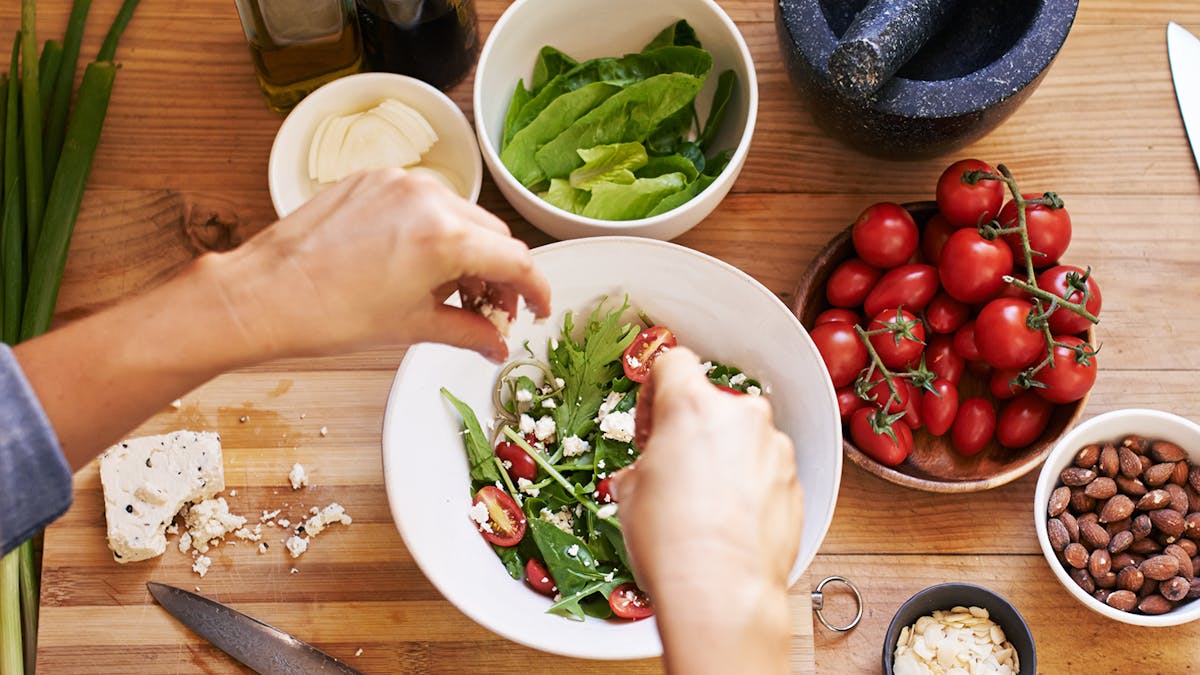
How to follow a healthy vegetarian keto diet
GuideAre you a vegetarian interested in the many benefits of a keto diet? Or perhaps you’re already eating keto but have been thinking about giving up meat.
Vegetarian keto recipes
Top keto basics videos
NEJM 2019: Cardiovascular risk reduction with icosapent ethyl for hypertriglyceridemia[randomized trial; moderate evidence]
Nutrients 2010: Omega-3 fatty acids and inflammatory processes [overview article; ungraded]
NEJM 2019: Cardiovascular risk reduction with icosapent ethyl for hypertriglyceridemia [randomized trial; moderate evidence] ↩
Medical Journal of Australia 2013: Omega-3 polyunsaturated fatty acids and vegetarian diets [overview article; ungraded] ↩
The American Journal of Clinical Nutrition 2003: Achieving optimal essential fatty acid status in vegetarians: current knowledge and practical implications [overview article; ungraded] ↩
The Medical Journal of Australia 2013: Omega-3 polyunsaturated fatty acids and vegetarian diets [overview article; ungraded] ↩
American Journal of Lifestyle Medicine 2018: Iron status of vegetarian adults: A review of literature [review of observational studies, weak evidence] ↩
American Journal of Clinical Nutrition 2010: Iron bioavailability and dietary reference values [overview article; ungraded] ↩
JAMA Network Open 2020: The efficacy and safety of vitamin C for iron supplementation in adult patients with iron deficiency anemia: A randomized clinical trial[ moderate evidence]
Nutrients 2014: Dietary determinants of and possible solutions to iron deficiency for young women living in industrialized countries: a review[overview article; ungraded]
↩European Journal of Clinical Nutrition 2014: The prevalence of cobalamin deficiency among vegetarians assessed by serum vitamin B12: a review of literature [overview article; ungraded] ↩
Nutrition Journal 2010: Vitamin D in health and disease: current perspectives [overview article; ungraded] ↩
American Journal of Clinical Nutrition 2012: Comparison of vitamin D2 and vitamin D3 supplementation in raising serum 25-hydroxyvitamin D status: a systematic review and meta-analysis [strong evidence] ↩
In order to counteract sodium losses, the kidneys may respond by trying to reabsorb more of it and excrete more potassium into the urine in order to maintain biochemical balance:
International Journal of Hypertension 2011: Insulin resistance, obesity, hypertension, and renal sodium transport [overview article; ungraded]
Virta Health blog post 2019: The importance of managing potassium and sodium as part of a well-formulated ketogenic diet [overview article; ungraded] ↩
USDA: What we eat in America, NHANES 2005-2006, usual nutrient intakes from food and water compared to 1997 Dietary Reference Intakes for vitamin D, calcium, phosphorus, and magnesium [observational study; weak evidence]
Nutrition Review 2012: Suboptimal magnesium status in the United States: are the health consequences underestimated? [overview article; ungraded] ↩
